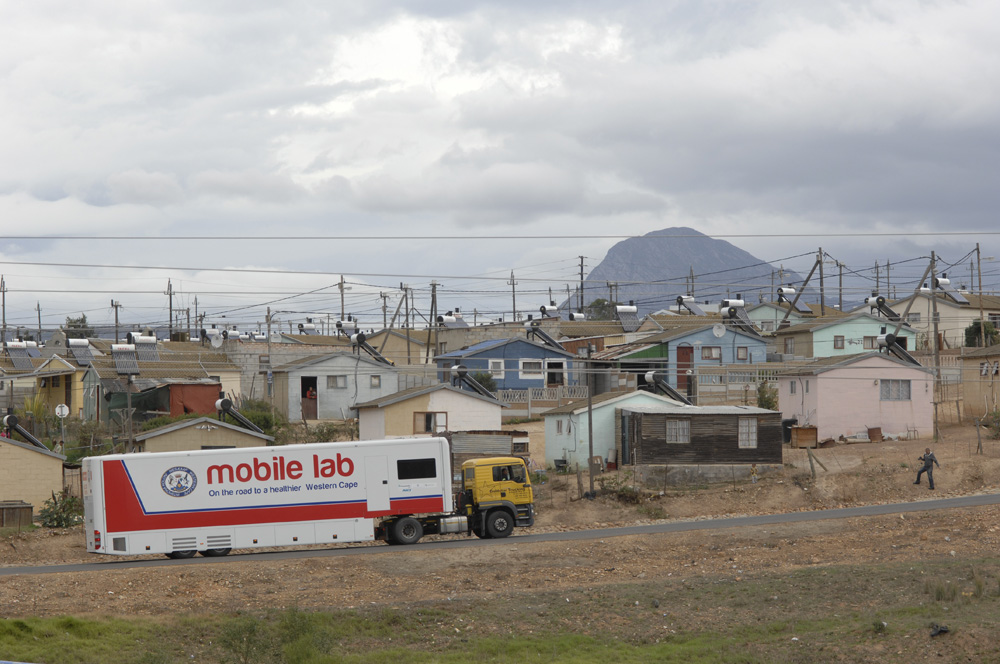Mobile assistance for AIDS patients in South Africa
The first mobile safety laboratory to operate under Biosafety Level 3 has been in use in South Africa since May 2011. As development of the Fraunhofer Institute for Biomedical Engineering in St. Ingbert, this special truck is used for testing and advising patients with AIDS and tuberculosis. The mobile laboratory can save patients' lives in remote areas because it cuts the waiting time between diagnosis and the start of treatment to just one day.
30 years ago, in June 1981, two doctors, Michael Gottlieb and Wayne Sandera of the University of California in Los Angeles, described the very first AIDS cases – and yet they had no idea that this newly described disease was caused by a virus and how this virus would spread and the impact it would have. According to estimates by UNAIDS (Joint United Nations Programme on HIV/AIDS), at the end of 2010, 34 million people in the world were living with HIV; some 5.6 million of these live in South Africa (2009). This makes South Africa the country with the fastest rate of spreading.
Given this fact, a mobile lab may seem like a drop in the ocean, but in fact it is closing a wide gap in patient care. In Africa, the distances are often very far and arduous and the poverty so severe that people quite simply cannot afford to miss two days' of work to take an HIV test. Up until now, ordinarily a patient would have a blood sample taken at the nearest hospital. From there, the sample would be transported to a central laboratory. To obtain the results - some 14 days later – the patient would then have to return to the hospital.. "For many people, this is nearly impossible to accomplish organizationally," observes Professor Hagen von Briesen, research director for the Mobile-Lab project. "It also costs people valuable time during which treatment could have begun. An increasing viral load means that the need for action is acute."
The team at IBMT spent five years developing the AIDS truck. Working with a company for special vehicle design, the approval was obtained for this safety laboratory on wheels, which was finally brought to South Africa's West Cape region.
The samples are tested in the rear section of the mobile lab, so the vehicle had to satisfy the requirements for Biosafety Level S3. Anyone wishing to access the testing area must first pass through an isolation sluice. Here, air intake and exhaust passes through filters to protect staff, patients and the environment. The team has also provided a way to grow cell cultures if need be – a process that can take up to three weeks. The vessels filled with fluid are placed in a device attached to the ceiling of the mobile lab. This keeps the vessels in a horizontal position even when the lab is cornering and climbing, braking or moving off. The lab has even been fitted with an autoclave that can sterilize objects using a self-contained water-circulation system.
